Introducing the 2023-24 Udall Center Fellows – Our Largest Cohort in Over 25 Years!
Since 1990, the Udall Center Fellows Program has invited UArizona faculty across campus to take a semester off from teaching duties in order to focus on scholarly research that touches on some aspect of public policy.
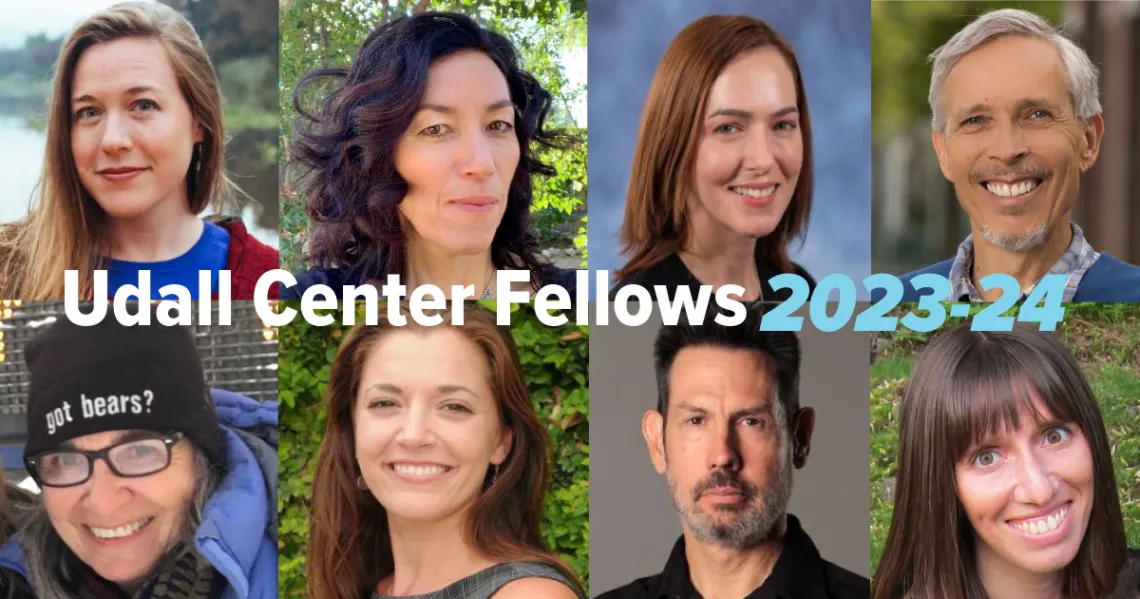
Now in its 34th year, the Udall Center Fellows Program is excited to welcome eight new fellows to our 2023-24 cohort.
This is the largest cohort of scholars accepted to the program since the 1996-97 academic year and it includes representation in three brand new research tracks; namely, the program’s Science, Environment, and Fine Arts Research Tracks.
The Fellows Program operates as a partnership between the Udall Center for Studies in Public Policy; the Office of Research, Innovation and Impact (RII); the College of Social and Behavioral Sciences; the College of Fine Arts; the College of Science; and the Arizona Institute for Resilience.
Fellows are released from teaching for a semester while they engage in their policy-related research.
Read on to learn more about this year’s fellows and the projects they will be working on over the course of the 2023-24 academic year.
Susan Brewer-Osorio
Assistant Professor, Latin American Studies; School of Government and Public Policy
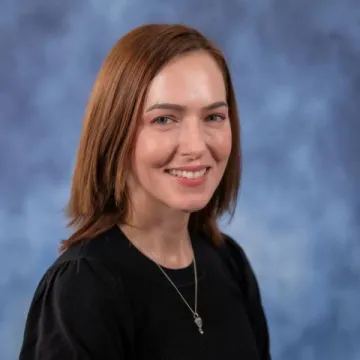
Project Track: Social Sciences & Public Policy (in partnership with the College of Social & Behavioral Sciences)
Project Title: Reintegration policies for former combatants after a peace agreement
How can governments most effectively reintegrate former combatants into civilian society after a violent conflict?
This is the crux of the research conducted by Professor Brewer-Osorio in Colombia.
Between 2019-2022, Brewer-Osorio conducted interviews with 72 former members of the insurgent group Revolutionary Armed Forces of Colombia (FARC), as well as community leaders, government officials and other stakeholders in the region.
The government of Colombia signed a peace agreement with FARC in 2016 allowing for both individualized and collective reintegration plans. Brewer-Osorio will spend her time as a Udall Center Fellow compiling the results of that research for a book manuscript and other potential publications related to combatant reintegration in Colombia, and analyzing the knowledge gained for potential application in other conflict-burdened regions like Iraq and Syria.
Leah Durán
Associate Professor, Teaching, Learning & Sociocultural Studies; College of Education

Project Track: Other Public Policy Research (in partnership with the Office of Research, Innovation & Impact)
Project Title: “Dignity and worth as a person”: Teacher organizing, the Bilingual Education Act, and bilingual education today
According to Professor Durán, the end of the COVID-19 pandemic led many scholars to call for a “reimagining of what schools are and can be.”
However, she asserts, “education in the U.S. can be stubbornly resistant to demands for reform, and particularly for reforms which call for a radical rethinking in the way that schools serve racialized children and youth.”
An exception to this rule of educational conservatism came with the passage of the 1968 Bilingual Education Act, which Durán says challenged the established assimilationist ethic in U.S. schools. And, here in Tucson, a small group of educators played a critical role in the development and passage of that law.
During her time as a Udall Center Fellow, Durán plans to wrap up her research on this influential team of educators and draft a book on the subject that she says “holds the potential to be significant at both the local, institutional level and to the field.”
Linda Green
Professor, Anthropology; School of Anthropology
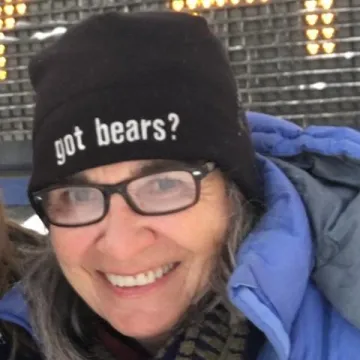
Project Track: Social Sciences & Public Policy (in partnership with the College of Social & Behavioral Sciences)
Project Title: In the Aftermath of Asylum: Guatemalan Mayan Women's Struggles for Survival in Guatemala, Chiapas, Mexico and the United States
The number of people fleeing violence from Guatemala, Honduras and El Salvador to seek asylum in the United States has risen exponentially since 2010. And, according to Professor Green, “These three countries, known as the Northern Triangle, are recognized as some of the most violent countries in the world not officially at war.”
Of those hoping to find sanctuary in the U.S., says Green, “female identified and LGBTQ+ asylum seekers from Guatemala are particularly vulnerable.” These asylum seekers face myriad hurdles in the U.S. legal system, including language barriers and discrimination, and over 90 percent are denied asylum and deported back to Guatemala.
During her fellowship, Green aims to examine “processes of survival in the lives of Mayan women in the aftermath of seeking asylum at the U.S.-Mexico border” by tracing “the divergent trajectories taken by Mayan women who are denied asylum in the U.S., as well as the small percentage of women who are granted asylum.”
Using “classic ethnographic methods of snowball sampling, participant observation and semi-structured interviews,” Green hopes to paint a picture of “how Indigenous women both make sense of emerging forms of violence and stigma and engage in everyday forms of solidarity and support” following their efforts to gain asylum.
Chris Impey
Distinguished Professor of Astronomy & Astronomer, Steward Observatory; Department of Astronomy and Steward Observatory
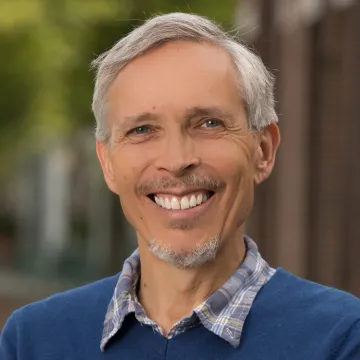
Project Track: Science & Public Policy (in partnership with the College of Science)
Project Title: Unbound: Ethics, Law, Sustainability, and the New Space Race
Space: the modern frontier.
Where space exploration was once “the exclusive domain of wealthy governments,” according to Professor Impey, today dozens of private companies are ushering in a new age of space exploration. “In 2017,” Impey says, “...there were more commercial launches into Earth orbit than launches by governments” for the first time in history.
As private sector involvement and innovation drive the costs of getting to space down at an exponential rate, space exploration for the purposes of recreation, tourism, and other forms of commerce will become increasingly accessible over time.
But conversations about the ethical and regulatory concerns of space exploration are in their early stages, begging the question, “What are the bounds on space activity and how might it be governed and regulated?”
During his time as a Udall Center Fellow, Impey hopes to answer these questions by examining the potential obstacles to space exploration in terms of “limitations imposed by the laws of physics,” by reviewing “the nascent fields of space ethics and space law,” and by assessing “the problem posed by space debris and the opportunity afforded by the ownership of space resources.”
Yuri Makino
Associate Professor, Associate Director of School of Theatre, Film and Television; School of Theatre, Film & Television
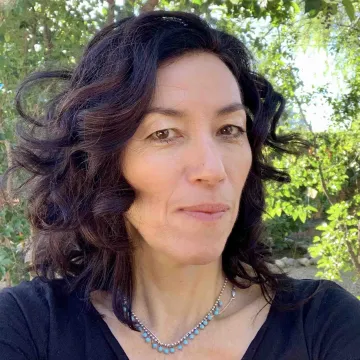
Project Track: Fine Arts & Public Policy (in partnership with the College of Fine Arts)
Project Title: "America’s Health: Welcome to the Game" Documentary
“Medicine was once based on an intimate relationship between doctor and patient,” says Professor Makino. “But behind the scenes, a gigantic industry emerged: buying, selling, and trading our medical services.”
In this feature-length documentary-in-progress, Makino and Tucson-based filmmaker Christine Harland intend to show that there is still hope when it comes to future of healthcare by shining a spotlight on a “growing movement of industry disruptors” looking to return to community-based healthcare models in lieu of the commercial model to which we have grown accustomed.
“After two years of research and interviews with thought leaders, healthcare industry disruptors, journalists and Americans from Nogales, Mexico to the Upper Peninsula of Michigan, we learned despite our cultural and political differences, the majority of people believe quality healthcare is a right and it must be affordable and accessible,” Makino says, “so we set out to find solutions.”
Says Makino, “Our film is about the people and communities who are restoring healthcare to its noble mission; one that is based on the needs of the people it serves.”
During her fellowship, Makino and Harland will continue to shoot and edit their film while also applying for funding to help them complete this ambitious project.
Michael Mulcahy
Associate Professor, Film and Television Program; School of Theatre, Film & Television
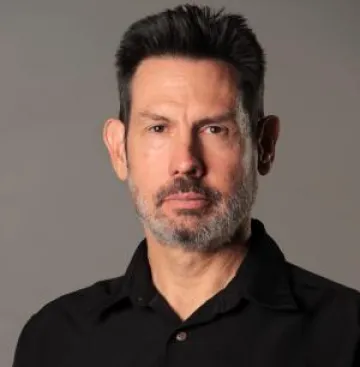
Project Track: Other Public Policy Research (in partnership with the Office of Research, Innovation & Impact)
Project Title: "Making Arizona" Documentary
For many Americans, the impacts of the climate crisis can seem abstract and distant – a slow-moving process that is far removed from the experience of their daily lives. But the reality is that the climate crisis is already underway, and the impacts of that crisis are already being felt.
According to Professor Mulcahy, “While there is a complex relationship between individual identity, personal values, and how people respond to the threats posed by global climate change, research suggests that stories relating individual experiences to larger events can be an effective part of social change.”
With his new documentary series Making Arizona, Mulcahy hopes to help Arizonans better understand the toll that the climate crisis is taking on local communities through a series of individual portraits of citizens who are working to address the climate crisis today.
During his time as a Udall Center Fellow, Mulcahy will work with a team to finalize several of these portraits and arrange screenings of the final product at venues across the state. His project also includes the development of educational materials related to the video portraits to “contextualize global climate change” for the general public.
Jennifer Roth-Gordon
Associate Professor, Anthropology; School of Anthropology

Project Track: Environment & Public Policy (in partnership with the Arizona Institute for Resilience)
Project Title: Extreme Heat and Thermal Control in Rio de Janeiro, Brazil
Rio de Janeiro, Brazil is recognized as one of the most vulnerable cities in the world when it comes to the risks associated with climate change.
In this new collaborative research project, Professor Roth-Gordon draws on anthropology’s strengths examining the interplay between individuals, culture, and society and her experience studying racial inequality for over 25 years to examine the impact of extreme heat in Rio de Janeiro. In order to raise awareness of the effects of structural racism and climate change on marginalized communities, her research team will be collecting ethnographic data on:
- an individual’s thermal control (the ability to regulate one’s ambient temperature and cool their body)
- infrastructural barriers and challenges (including electricity and access to AC)
- community-level heat mitigation efforts (such as planting gardens on roofs and city bus stops)
The Udall Center Fellowship will enable Roth-Gordon to collect preliminary data during the hottest time of year (January-March) and prepare external grants for a multi-year study that includes individual and group interviews and participant observation while Rio residents are at home, at work, and on public transportation. Through this project, she seeks to enhance our understanding of the personal and racial impacts of extreme heat, “offer(ing) critical data to lawmakers, health professionals, and urban planners.”
Beth Tellman
Assistant Professor; School of Geography, Development & Environment
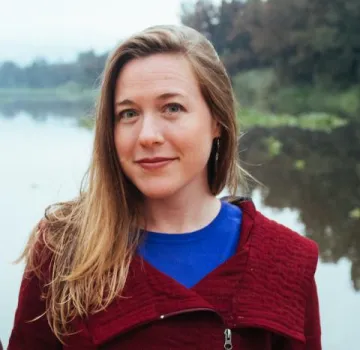
Project Track: Environment & Public Policy (in partnership with the Arizona Institute for Resilience)
Project Title: Addressing flood vulnerability, exposure, and injustice in the US borderlands with satellite data
According to Professor Tellman, “Exposure (to flood risk) and vulnerability are inextricably linked.” People who live in areas that are subject to flooding often have no other option, or their exposure risk may be exacerbated by factors outside their control.
Tellman has spent the first two years of her employment at the University of Arizona “building a lab that has developed machine learning algorithms, datasets, and a satellite imagery data pipeline to quantify environmental changes that include land use change, flooding, and infrastructure development globally.”
During her time as a Udall Center Fellow, Tellman intends to “ground that research regionally by focusing (her) expertise on the US-Mexico borderlands,” where she says “(f)looding is a growing problem… due to urban growth in cities but (a) lack of drainage infrastructure in unincorporated communities, increasing precipitation extremes in a changing climate, and the US-Mexico border wall.”
Her work in this regard will focus on three fronts:
- Flood exposure, adaptation, and justice in colonias (peri-urban, informal communities)
- Flood risk related to the new border wall built since 2008, and
- The role of urbanization and real estate development increasing flood exposure.
Ultimately, Tellman says she hopes to “better leverage satellite and geospatial data to enact legal, regulatory, or procedural changes that could have a deep and longstanding impact to promote sustainability and justice for people and the environment.”

